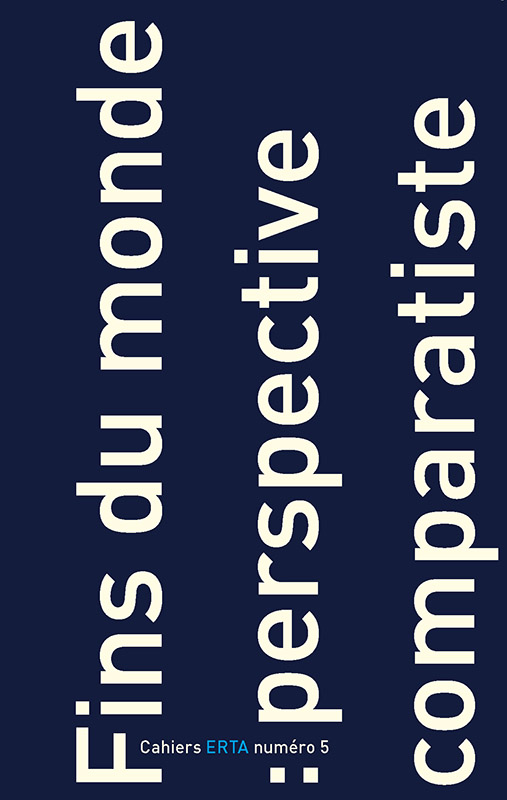Messies postmodernes ou messies fin-de-vingtième-siècle ? Résistances d’une figure mythique de fin de l’histoire chez Saramago, Palahniuk et Volodine
Mots-clés :
Messiah, postmodernism, twentieth-century nove, end of historyRésumé
This article analyzes the permanence of mythical Messiah figures in three western novels of the twentieth century’s last decade narrating the end of the history: Ensaio sobre a cegueira by José Saramago (1995), Fight Club by Chuck Palahniuk (1996) and Des anges mineurs by Antoine Volodine (1999). While these three novels distance themselves from the religious Judeo- Christian tradition, their aesthetics are also hypercritical of modernism. These Messiah figures are then reconfigured to deconstruct traditional and modernist concepts, and to reject these old ideologies. Above all, they embody the essence of the fictional project, by putting an end to the linear and monosemic story metanarrative so as to develop new narrative possibilities. We will therefore characterize these figures as turn-of-the-twenty-firstcentury Messiahs rather than postmodern Messiahs, to the extent that they relate the death of ideologies, but also try to propose new metanarratives.
Téléchargements
Références
Amorim S., José Saramago : Art, théorie et éthique du roman, Paris, L’Harmattan, 2010.
Boia L., La Fin du monde : une histoire sans fin, Paris, La Découverte, 1989.
Bonny Y., Sociologie du temps présent: modernité avancée ou postmodernité ? Paris, Colin, 2004.
Cazelles H., Le Messie de la Bible : christologie de l’Ancien Testament, Paris, Desclée, 1978.
Cohn N., Les Fanatiques de l’Apocalypse : courants millénaristes révolutionnaires du XIe au XVIe siècle avec une postface sur le XXe siècle, S. Clémendot (trad.), Paris, Julliard, 1962.
Desroche H., Dieux d’hommes : dictionnaire des messianismes et millénarismes de l’ère chrétienne, Paris La Haye, Mouton, 1969.
Desroche H., Sociologie de l’espérance, Paris, Calmann-Lévy, 1973.
Gontard M., « Le postmodernisme en France : définition, critères, périodisation », [dans :] M. Touret, F. Dugast-Portes (dir.), Le Temps De Lettres, Quelles périodisations pour l’histoire de la littérature française du XXe siècle ?, Rennes, Presses Universitaires de Rennes, 2001.
Hutcheon L., A Poetics of Postmodernism: History, Theory, Fiction, New York, Routledge, 1988.
Jouve V., L’effet-personnage dans le roman, Paris, Presses Universitaire de France, 1998.
Lyotard J.-F., La Condition postmoderne : rapport sur le savoir, Paris, é́ditions de Minuit, 1979.
Palahniuk C., Fight Club, (1996), London, Vintage, 1997, F. Michalski (trad.), Paris, Gallimard, 1999.
Ruffel L., Le Dénouement, Lagrasse, Éditions Verdier, 2005.
Saramago J., L’Aveuglement : roman, G. Leibrich (trad.), Paris, é́ditions du Seuil, 2000.
Saramago J., La Lucidité, G. Leibrich (trad.), Paris, Seuil, 2004.
Volodine A., Des anges mineurs: narrats, Paris, é́ditions du Seuil, 1999.
Weber M., L’éthique protestante et l’esprit du capitalisme (1904-1905), J.-P. Grossein (trad.), Paris, Gallimard, 2003.
Zola E., Travail, Paris, Eugène Fasquelle, 1901.

 Revues scientifiques académiques
Revues scientifiques académiques





